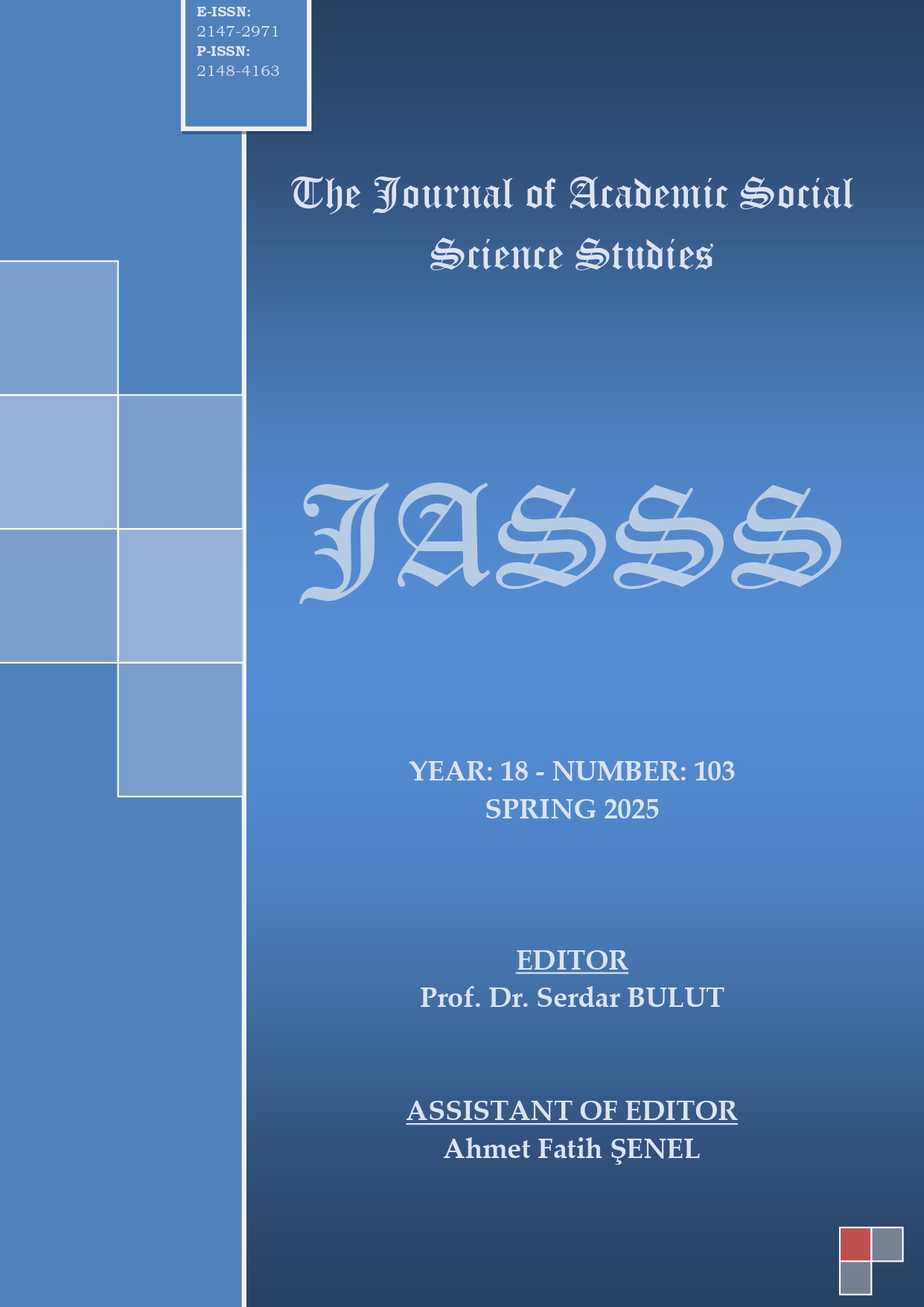Author :
Abstract
Türkiye'de enflasyon, son yıllarda giderek artan bir şekilde ekonomi üzerinde büyük etkiler yaratmış, ekonomik istikrarı bozmuş, yatırım ortamını zorlaştırmış ve satın alım gücünü azaltarak olumsuz sosyal etkilere neden olmaktadır. Dolayısıyla Türkiye’de enflasyonun zaman içinde nasıl değiştiğini ve hangi faktörlerin bu değişimde etkili olduğunu incelemek gelecek enflasyon süreçlerini anlamak ve buna uygun politika geliştirmek için oldukça önem arzetmektedir. Burada Türkiye'deki enflasyonun dinamiklerini zamanla değişen parametre modeli kullanarak analiz edilmektedir. Enflasyonun ekonomi üzerindeki etkileri, döviz kurları, GSYH’daki değişmeler, kamu harcamaları, faiz oranları, para arzındaki değişmeler, petrol fiyatları, dış ticaret açığı ve geleceğe ilişkin belirsizlik gibi birçok faktörün zamana bağlı değişimlerini yansıtmaktadır. Geleneksel sabit parametreli modellerin yetersiz kaldığı bu tür analizlerde, zamanla değişen parametre modelleri dinamik yapısal değişimleri anlamak için önemli bir araç sunmaktadır. Değişkenlerin dinamik davranışları, 2002Q2-2023Q4 dönemi için üç aylık veriler kullanılarak Kalman filtreleme tabanlı zamanla değişen parametre yaklaşımı kullanılarak analiz edilmiştir. Çalışma için en uygun enflasyon serisini belirlemek amacıyla durağanlık testleri yapılmıştır. Test sonuçlarına göre modelde Deflatör serisinin kullanılması uygun bulunmuştur. Diğer taraftan regresyon tahminleri, enflasyonun belirleyicilerinin zamanla değiştiğini göstermektedir. Dolayısıyla bu çalışmada sabit olmayan bir parametrik yaklaşım olan Kalman filtresi yaklaşımı uygulanmıştır.
İncelenen enflasyon hedeflemesi döneminin ilk yıllarında enflasyon serisinde olumlu gelişmelerin olduğu görülmektedir. Bu dönemde döviz kurları, kamu harcamaları, para arzı, petrol fiyatları ve dış ticaret dengesindeki değişmelerin enflasyon üzerindeki olumsuz etkileri 2008 yılına kadar kademeli olarak azalmaktadır. Ancak incelenen dönemin geri kalan bölümünde bu değişkenlerdeki değişmelerin enflasyonun temel dinamiklerini oluşturduğu gözlenmektedir. Bu döneme ilişkin diğer önemli bir konu da faiz oranlarının enflasyon üzerinde etkisinin dönem boyunca olumlu olduğudur. Uygulanan faiz politikası, faiz oranlarının enflasyonu etkilemeyecek hatta negatif yönde etkileyecek düzeyde tutulması ile neticelenmiştir. İncelenen dönemin sonlarında enflasyon serisinde yapısal bir kırılma tespit edilmiştir. Bu kırılma ile birlikte yeni bir enflasyonist bir sürece girildiği görülmektedir. Bu süreçte petrol fiyatları, dış açık, para arzı, kamu harcamaları ve döviz kurları enflasyon üzerinde etkilidir. 2008-2021 döneminde bu etkiler istikrarlı seyrederken, 2021'den itibaren enflasyon üzerindeki olumsuz etkilerin giderek arttığı gözlenmektedir.
Keywords
Abstract
In Türkiye, inflation has increasingly had significant impacts on the economy in recent years, disrupting economic stability, complicating the investment environment, and reducing purchasing power, leading to adverse social effects. Therefore, examining how inflation in Turkey has evolved over time and identifying the factors influencing this change is crucial for understanding future inflation processes and developing appropriate policies. In this study, the dynamics of inflation in Turkey are analyzed using a time-varying parameter model. The effects of inflation on the economy reflect the time-dependent changes in various factors such as exchange rates, changes in GDP, public expenditures, interest rates, changes in money supply, oil prices, trade deficits, and future uncertainty. In such analyses, where traditional fixed-parameter models fall short, time-varying parameter models provide an important tool for understanding dynamic structural changes. The dynamic behaviors of the variables are analyzed using a Kalman filter-based time-varying parameter approach, utilizing quarterly data for the period 2002Q2-2023Q4. To determine the most suitable inflation series for the study, stationarity tests were conducted. Based on the test results, the Deflator series was found to be appropriate for the model. On the other hand, regression estimates indicate that the determinants of inflation have changed over time. Therefore, a non-fixed parametric approach, the Kalman filter method, has been applied in this study.
During the early years of the inflation targeting period examined, positive developments in the inflation series were observed. In this period, the adverse effects of exchange rates, public expenditures, money supply, oil prices, and changes in the trade balance on inflation gradually decreased until 2008. However, in the remaining part of the examined period, changes in these variables were observed to shape the core dynamics of inflation. Another important issue during this period is that the impact of interest rates on inflation remained positive throughout. The implemented interest rate policy resulted in interest rates being maintained at levels that did not affect inflation or even influenced it negatively. Towards the end of the examined period, a structural break was detected in the inflation series. This break indicates the onset of a new inflationary phase. During this phase, oil prices, trade deficits, money supply, public expenditures, and exchange rates were influential on inflation. While these effects remained stable during the 2008-2021 period, the negative impacts on inflation have increasingly intensified since 2021.





